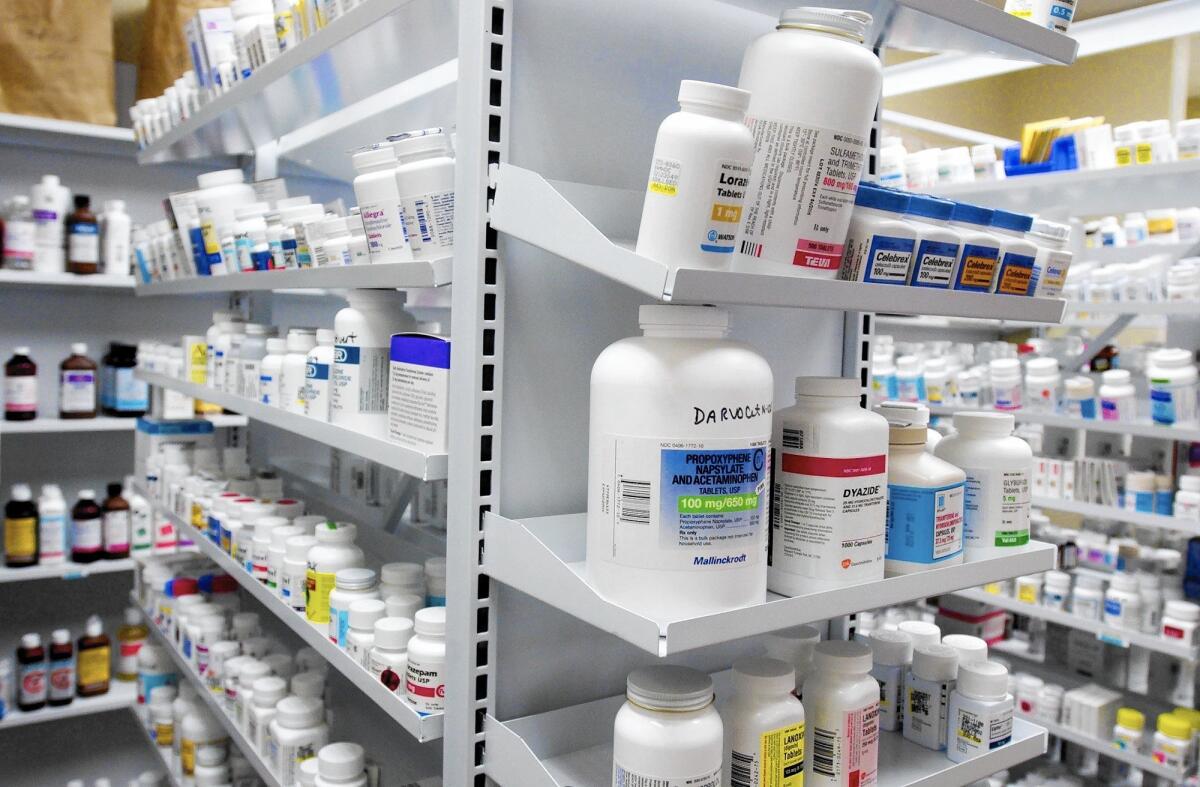Senators unveil plan to save $100 billion on U.S. drug costs

- Share via
Two key U.S. senators unveiled a long-awaited bill to reduce pharmaceutical costs for people in government health programs, with the promise of saving taxpayers and patients more than $100 billion over a decade.
The proposal, which will begin working its way through Congress later this week, was released by the Republican and Democratic leaders of the Senate Finance Committee, Charles E. Grassley of Iowa and Ron Wyden of Oregon.
It contains several programs designed to reduce government spending on Medicare and Medicaid and lower patients’ costs and premiums. One initiative would force drugmakers to give rebates if they raised drug prices beyond a measure of inflation. Another would cap the amount people in Medicare’s drug benefit have to spend out of their own pocket.
Other parts of the bill would make changes to how Medicaid, the federal-state program for low-income people, pays for drugs. The lawmakers said the bill would increase transparency in the pharmaceutical supply chain, which depends on a complex web of middlemen and distributors.
Middle-class Americans are bearing the brunt of the rise in health insurance deductibles and medical bills. That’s helped widen political divisions.
The legislation would be a crucial step for lawmakers who have worked for months to come up with a viable plan that can appease Republicans, Democrats and the Trump White House. It’s likely to face many obstacles, including aggressive lobbying by a drug industry that so far has fended off many recent efforts to change its business practices.
The House of Representatives is expected to weigh in on drug prices in September, when Democrats who are in control there will unveil their own legislation, the chief healthcare advisor to House Speaker Nancy Pelosi (D-San Francisco) said Monday. That proposal is likely to address drugs that don’t currently face much competition, Pelosi’s aide Wendell Primus said at an event at the Brookings Institution.
More to Read
Inside the business of entertainment
The Wide Shot brings you news, analysis and insights on everything from streaming wars to production — and what it all means for the future.
You may occasionally receive promotional content from the Los Angeles Times.











